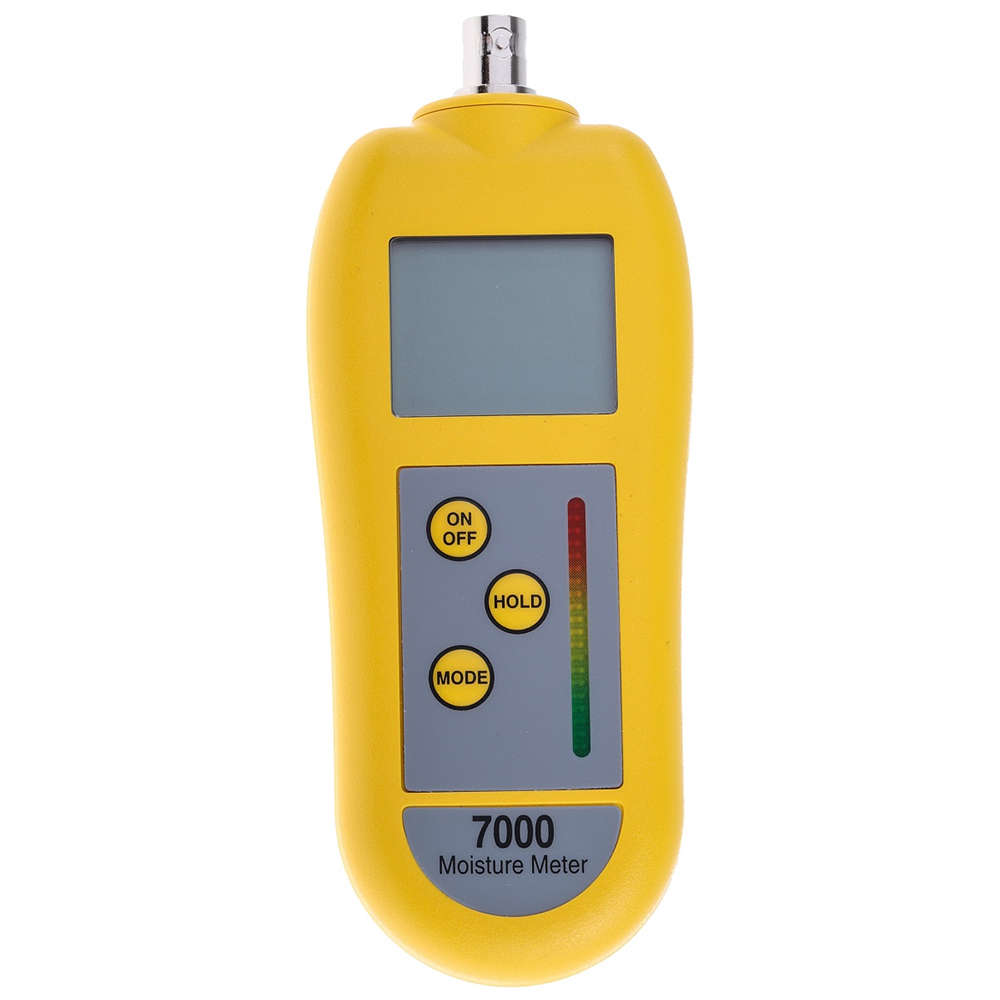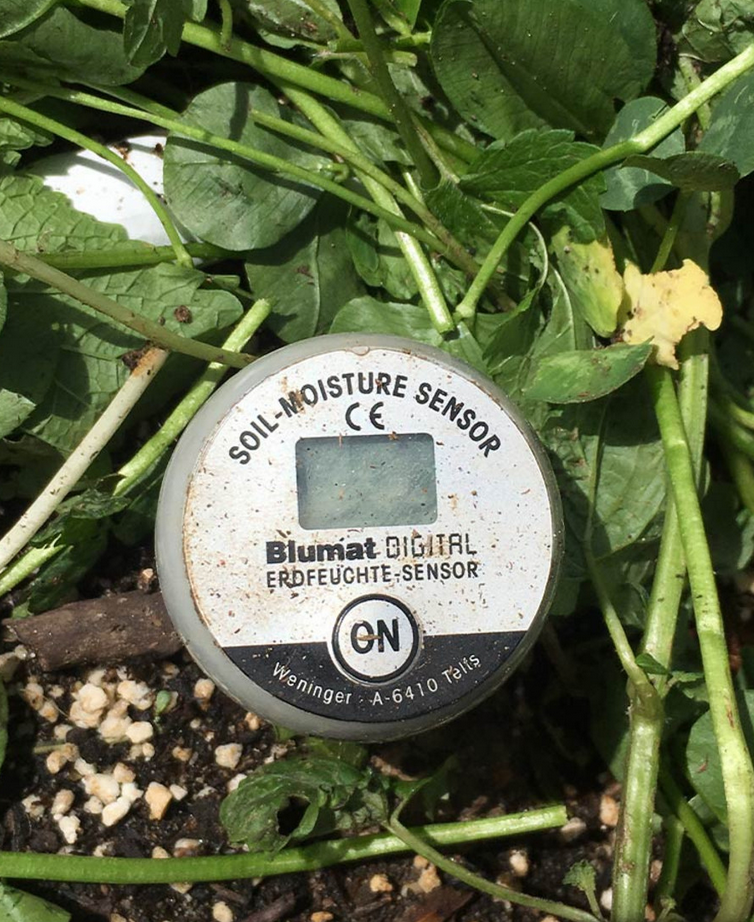Leading 10 Benefits of Using a Moisture Meter for Accurate Measurements in Your Home
Leading 10 Benefits of Using a Moisture Meter for Accurate Measurements in Your Home
Blog Article
The Ultimate Guide to Wetness Meters: A Comprehensive Summary and How They Can Conserve You Cash
In the realm of structure maintenance, building and construction, and numerous industries, the value of properly gauging moisture levels can not be overemphasized. Dampness meters work as crucial devices in spotting and keeping an eye on moisture material in products, helping in stopping costly problems and ensuring the quality of products. Recognizing the subtleties of different kinds of wetness meters, their applications, and the prospective cost-saving benefits they provide can be a game-changer for organizations and professionals alike. Uncovering how these gadgets can not only streamline processes but additionally add to financial savings is a trip worth embarking on.
Sorts Of Moisture Meters
One typical type is the pin-type wetness meter, which gauges the electric resistance in between 2 pins inserted right into a material. Pinless dampness meters, on the various other hand, use electro-magnetic sensing unit plates to check a larger location without triggering damages to the product's surface area.

In addition, there are also specialized dampness meters designed for particular materials like hay, grain, or dirt. These meters provide precise wetness readings customized to the special residential or commercial properties of the product being evaluated. Infrared dampness meters determine the thermal properties of a product to determine its moisture material non-invasively, making them beneficial for applications where pin or pinless meters may not be appropriate. Recognizing the various kinds of moisture meters offered can help industries select one of the most proper device for their specific moisture measurement needs.

Advantages of Utilizing Wetness Meters
Dampness meters supply invaluable benefits in properly evaluating and monitoring moisture levels in varied products and atmospheres (Moisture Meter). One of the primary benefits of making use of wetness meters is the prevention of prospective damages brought on by excess dampness. By identifying and resolving high moisture degrees beforehand, moisture meters aid to protect against mold and mildew growth, rot, and structural damage in structures, saving both money and time on repairs. Furthermore, wetness meters aid in making sure the quality of products throughout construction or manufacturing processes. By properly determining dampness material, these tools aid maintain the honesty of wood, drywall, concrete, and various other products, minimizing the risk of flaws or failures.
Furthermore, making use of dampness meters can bring about raised energy efficiency. By determining areas with high wetness degrees, such as leakages or inadequate insulation, adjustments can be made to improve energy conservation and minimize utility prices. In farming settings, dampness meters play an essential duty read the article in maximizing crop returns by allowing farmers to keep track of dirt dampness degrees and make notified watering decisions. On the whole, the benefits of utilizing dampness meters extend across numerous sectors, offering cost-efficient options and promoting better quality assurance techniques.
Just How to Select the Right Moisture Meter
When choosing a dampness meter, it's crucial to ensure that the meter is ideal for the specific product you will be testing. Different materials have varying electric buildings that can influence dampness readings, so picking a meter created for your product is essential for precise results. By carefully evaluating these elements, you can choose a moisture meter that satisfies your requirements and provides accurate dampness dimensions for your tasks.
Correct Techniques for Moisture Meter Use

Expense Cost Savings With Moisture Meter Applications
Exactly how can the tactical application of moisture meters bring about substantial price savings click here to read throughout various markets? Dampness meters play an essential function in cost financial savings by stopping potential damage and ensuring top quality control in various fields. In the farming sector, dampness meters help in establishing the ideal time for collecting plants, stopping over-drying or excess moisture that can affect the end product's high quality. This precise tracking assists farmers avoid unneeded losses and maximize their yield.
In a similar way, in building and construction, dampness meters assist avoid costly damages by finding moisture degrees in building materials, such as timber or concrete, which can lead to structural issues otherwise attended to without delay. By identifying issue locations beforehand, contractors can take restorative steps to avoid considerable repair work or replacements, eventually saving money and time.
Additionally, in the food handling industry, moisture meters a knockout post are crucial for checking product high quality and ensuring compliance with safety policies. By accurately determining moisture web content in food products, manufacturers can prevent spoilage, preserve quality, and reduce waste, causing considerable cost financial savings. On the whole, the critical application of wetness meters is a valuable investment that can cause considerable price reductions and improved performance across different sectors.
Final Thought
Finally, moisture meters are beneficial tools for finding and determining wetness degrees in numerous materials. By utilizing the right dampness meter and following correct methods, individuals can successfully stop expensive damages triggered by excess moisture. Investing in a quality wetness meter can cause considerable cost financial savings over time by identifying prospective problems early on and enabling timely removal. Eventually, moisture meters are important instruments for preserving the honesty and durability of materials and structures.
Moisture meters serve as crucial tools in detecting and checking moisture web content in products, helping in preventing expensive problems and ensuring the top quality of products. Infrared wetness meters gauge the thermal buildings of a product to establish its dampness material non-invasively, making them beneficial for applications where pin or pinless meters might not be appropriate.Dampness meters provide important advantages in precisely monitoring and assessing dampness levels in diverse materials and environments. In agricultural settings, dampness meters play a crucial role in optimizing crop returns by allowing farmers to keep track of dirt dampness degrees and make notified irrigation choices.In conclusion, moisture meters are useful devices for spotting and determining moisture degrees in numerous materials.
Report this page